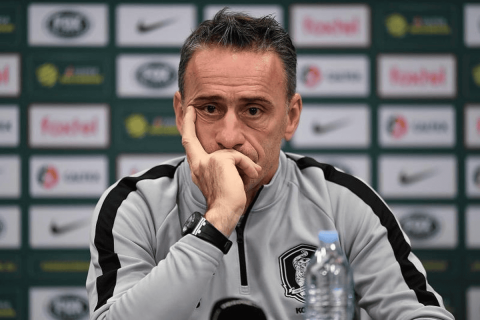UAE Fires Head Coach Paulo Bento
In a surprising development just hours after a dramatic victory, the United Arab Emirates has parted ways with head coach Paulo Bento, despite the national team remaining in contention for direct qualification to the 2026 FIFA World Cup. The Portuguese tactician, known for previous stints with Portugal and South Korea, was relieved of his duties after a 2-1 win over North Korea in Riyadh. The decision arrives with just two games left in the crucial third round of Asian qualifiers, raising questions about internal dynamics and the federation’s long-term vision for the team.
Late Goal Keeps UAE in Contention
The UAE clinched a last-gasp 2-1 win over North Korea in their latest World Cup qualifying clash, held in Riyadh. Sultan Adil emerged as the hero, netting a dramatic stoppage-time winner that preserved the nation's dream of securing a direct berth to the 2026 finals.
The victory narrowed the gap to second-placed Uzbekistan in Group A to just four points, setting the stage for a high-stakes encounter between the two sides on June 5. With only two matches remaining in the third round of qualifiers, the race for automatic advancement remains alive.
Paulo Bento Dismissed Despite Competitive Record
In a surprising move, the UAE Football Association announced the dismissal of head coach Paulo Bento and his entire coaching staff on Wednesday. The timing, coming less than 24 hours after a critical win, has left many observers stunned.
Bento assumed leadership of the national squad in July 2023 and has since compiled a record of 14 wins, six draws, and six losses. Despite maintaining a competitive edge and steering the team into the latter stages of qualification, his tenure has come to an abrupt halt with the finish line in sight.
Bento’s Coaching Legacy Carries Weight
Paulo Bento arrived in the UAE with an accomplished resume. The Portuguese manager led Portugal to the semi-finals of Euro 2012 and later coached South Korea to the Round of 16 at the 2022 World Cup in Qatar.
His tactical acumen and experience on the world stage were seen as assets in guiding the UAE toward its World Cup ambitions. Yet, despite those credentials, the federation opted for a change, underscoring the volatile nature of managerial roles in international football.
Qualification Format Adds Pressure to Results
The Asian qualifiers for the 2026 FIFA World Cup are structured to grant automatic entry to the top two teams from each of three third-round groups. The UAE, currently chasing second-place Uzbekistan, must now prepare for pivotal fixtures without the leadership of their former head coach.
Iran has already secured qualification from Group A, while the UAE’s path hinges on results against Uzbekistan and Kyrgyzstan. Even if they fall short of automatic qualification, the Emiratis are guaranteed a spot in the fourth round, offering another opportunity to reach the finals through the extended qualifying format.
Uncertainty Clouds UAE’s Immediate Future
With just weeks remaining until their decisive clash with Uzbekistan, the timing of Bento’s dismissal introduces significant uncertainty. It remains unclear who will step in to lead the team for the critical matches ahead, and whether a short-term appointment can maintain continuity or galvanize the squad.
The federation’s statement offered no detailed rationale for the decision, though speculation suggests potential disagreements over strategy or player management. The abrupt shift comes at a delicate juncture, with momentum and cohesion hanging in the balance.
Final Fixtures Will Define the Campaign
The UAE’s upcoming match against Uzbekistan on June 5 could determine the trajectory of their entire World Cup qualification campaign. That contest, followed by a final group-stage clash against Kyrgyzstan five days later, presents a narrow window to secure direct advancement.
Given the shakeup in leadership and the mounting pressure, the players will now have to rally amid the chaos. Success may hinge not just on tactical execution, but on emotional resilience and unity in the face of sudden change.
